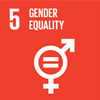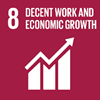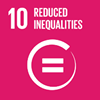The GGDC/UNU-WIDER Economic Transformation Database provides comprehensive, long-term, and internationally comparable sectoral data on employment and productivity in Africa, Asia, and Latin America.
Structural transformation — when an economy shifts from predominantly low-productivity sectors to those of higher productivity — is a central feature of economic development. This change often involves the emergence and expansion of new industries that can contribute to better jobs and improved livelihoods.
Looking at how the structures of economies transform over time can provide precious insights on how especially developing economies, in particular low-income, can achieve sustainable, inclusive development.
To support research and good policy, UNU-WIDER has partnered with the Groningen Growth and Development Centre (GGDC) of the University of Groningen to construct the GGDC/UNU-WIDER Economic Transformation Database (ETD), the successor of the GGDC 10-sector database.
First launched in February 2021, the ETD is open and free to use, and allows users to examine patterns and causes of structural transformation and productivity growth in today’s developing economies, including at the country, regional, or cross-country levels.
ETD has been last updated on September 2023. Please consult the change log for an overview of the changes.
The ETD covers:
- measures of economic growth and labour inputs for 51 economies in Africa, Asia, and Latin America;
- 12 sectors of the total economy;
- time series with annual data from 1990 until 2018;
- data on value added, price deflators, and persons employed.
The ETD is also accessible through GGDC’s webpages.
Other outputs of the joint project include two working papers on insights into economic transformation.
Key questions
- What is the industrialization experience of developing economies in recent decades?
- What is the relation between growth, female labour force participation, poverty reduction and sectoral patterns of employment and production?
- Can countries achieve growth, provide good jobs, and reduce poverty without industrialization?
- Can modern agriculture and modern services serve as an alternative mechanism of structural transformation and economic growth?
Watch this space
All working papers, events, briefs, blog posts, and opportunities to engage relating to the project will be made available on this webpage and at the Groningen Growth and Development Centre (GGDC).
UN’s 2030 Agenda for Sustainable Development
The research will address Goal 5: Gender equality; Goal 8: Decent work and economic growth; Goal 9: Industry, innovation and infrastructure; and Goal 10: Reduced inequalities.

 Join the network
Join the network

